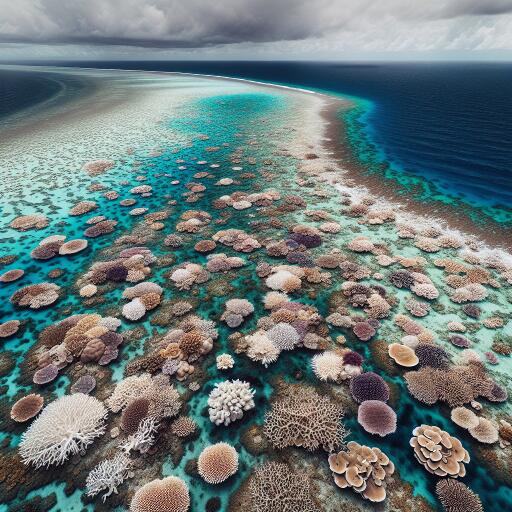
Barrier Reef Suffers 5th Bleaching Since 2016 Due to Climate Crisis
The Great Barrier Reef, a colossal natural wonder stretching over 2,300 kilometers along the northeastern coast of Australia, is facing a critical challenge. Recently, it was reported that this majestic coral system, the largest of its kind on Earth, has experienced its fifth mass bleaching event since 2016, all pointing towards the ongoing climate crisis as the culprit.
Roger Beeden, a prominent figure from the Great Barrier Reef Marine Park Authority, has expressed concerns over the current situation. According to Beeden, aerial assessments have revealed extensive bleaching within the reef, particularly in shallow water regions. However, precise evaluations concerning the depth and severity of this bleaching will necessitate detailed underwater surveys.
An official report by the Marine Park Authority disclosed that, over the summer, the bleaching phenomenon has not spared any of the 300 reefs examined. This period, spanning from December to February in the southern hemisphere, is known for elevating water temperatures, exacerbating the condition of the reef system, which spans an area of 344,400 square kilometers, roughly comparable to Germany’s geographical expanse.
The recent evaluations have found that the bleaching predominantly affects surface-level corals. Yet, there’s a pressing need for more in-depth studies to understand its impact on deeper marine life fully. This latest bleaching episode aligns with similar occurrences reported in the Northern Hemisphere over the last year, underscoring a global marine crisis.
Historically, the Great Barrier Reef, a UNESCO World Heritage Site since 1981, has weathered mass coral bleaching events in 1998, 2002, 2016, 2017, 2020, 2022, and now in 2024. The escalating ocean temperatures lead corals to expel the vital zooxanthellae algae, disrupting their symbiotic relationship. This algae provides up to 90 percent of the coral’s energy, and without it, corals become discolored and are pushed closer to mortality.
The phenomenon has raised alarm bells with the World Wildlife Fund, especially given its unusual timing amidst the La Nina event, which typically brings increased rainfall to Australia’s eastern coast. “Without a significant decline in temperatures in the immediate future, we’re looking at a high probability of significant coral loss,” warned Richard Leck from the World Wildlife Fund, emphasizing the critical nature of the current situation.
Subject to climate change impacts since 1990, the Great Barrier Reef is a biodiversity hotspot, home to 400 coral species, 1,500 fish species, and 4,000 mollusk varieties. Its current plight is a loud wake-up call for urgent action towards mitigating the climate crisis, to preserve not only this iconic reef but also marine ecosystems worldwide.





Leave a Reply